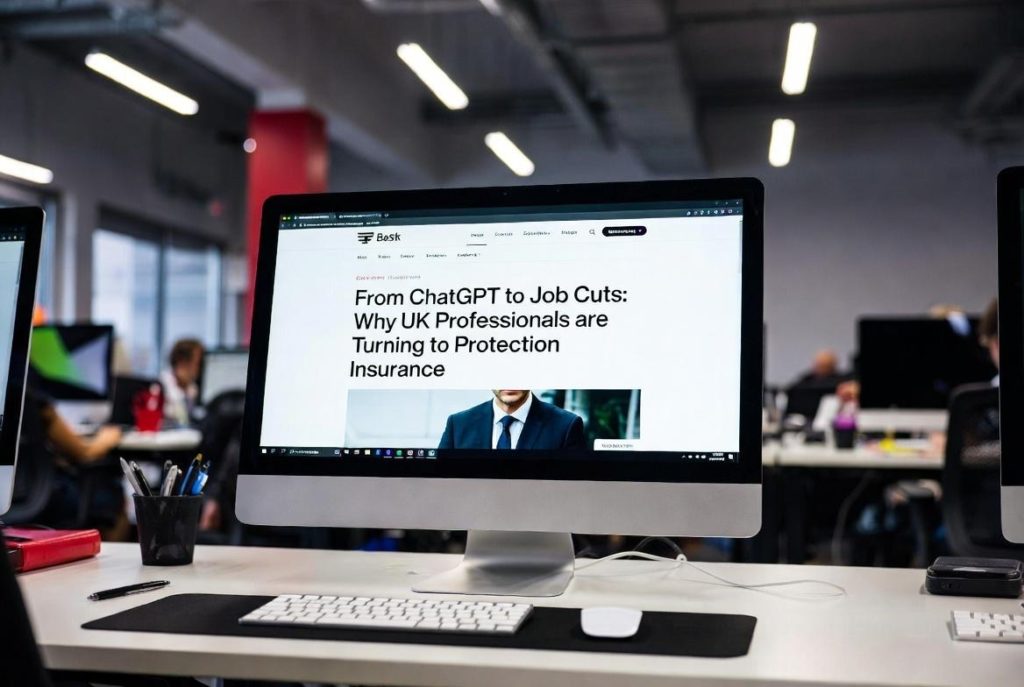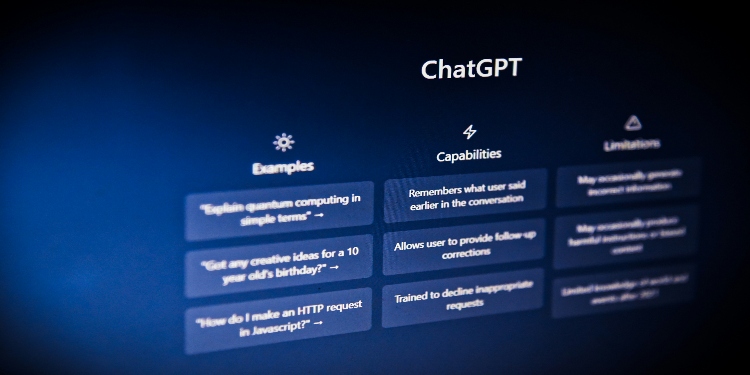As one of the UK’s top unemployment insurance providers, Best Insurance has been seeing an unprecedented uptick in interest in income protection insurance across the country. We all know that 2025 has been a year of tough job markets and AI innovation, which makes finding new employment difficult, but there are many reasons for this sudden push behind income protection insurance and redundancy insurance.
A recent survey conducted by Acas has found that ‘more than a quarter (26%) of workers are worried that artificial intelligence (AI) will lead to job losses’, which has led to a number of full-time employees investing in income protection insurance. While previous generations have had to worry about many of the same things all of us worry about – inflation, the health of the economy, and a hostile job market – the innovation introduced by AI is an unforeseen complication in the lives of many workers, young and old.
According to The Guardian, 41% of bosses are utilising AI to cut down on their number of employees – and 31% of those surveyed admitted to turning to AI before considering hiring a person. When it comes to large private sector companies, more than 1 in 4 (26%) are expecting their headcount to drop due to the impact of AI – and with 20% of public sector employees saying the same, that isn’t an isolated statistic. Given that AI is so accessible now due to services such as ChatGPT, this is hardly a surprise – but it is an unfortunate reality that makes job security a thing of the past for far too many people. The tech industry in particular has been hit hard by job cuts, with Amazon reducing its corporate workforce by approximately 14,000 roles and reports of 20,000 job cuts across European companies.
But it isn’t just AI that’s been pushing widespread layoffs. The delivery firm DPD recently dropped an estimated 1,500 self-employed drivers for reasons unrelated to AI, while up to 1,500 Greater London Authority staff under Sir Sadiq Khan have recently been alerted to the risk of incoming redundancy. Across the UK, job losses are on the rise, with fewer employers advertising for staff and the value of workers’ pay ever-decreasing under inflation. According to The Guardian, unemployment is at its highest rate since right after the COVID-19 Pandemic in 2021.
The Office for National Statistics estimates that payrolled employees fell by about 115,000 over the course of the year. You’d expect that to mean that job vacancies were on the rise and there was a lot of economic activity across many different businesses, but in actuality, vacancies fell over the year to 717,000 in the period July to September 2025 – which is below pre-pandemic levels.
It’s in the midst of this ‘job-pocalypse’ that the need for income protection insurance comes in. Many people associate income protection insurance with the accident and sickness side of its cover, which is helpful, but that’s not all it offers. As a general rule, income protection insurance policies include accident and sickness coverage as well as unemployment protection cover (though you can also purchase redundancy insurance as a standalone product). This unemployment protection cover has been designed to cover your financial responsibilities if you lose your job unexpectedly and it isn’t your fault; for example, if you were made redundant.
According to a study published in Socio-Economic Review, UK families lose nearly a fifth (17%) of their household income in the first year after job loss. If new employment isn’t found over the following five years, that income loss rises to over a third at about 35% – which can be nearly impossible to balance when you’re trying to keep not only yourself but also your family afloat. With inflation on the rise, the value of your money is already uncertain when it comes to the future – but having less of it in your pocket puts you and your household in a deeply uncomfortable position.

In the words of Dr Selçuk Bedük, Departmental Lecturer in Comparative Social Policy at DSPI, ‘strong unemployment insurance is a crucial tool for reaching a more dynamic labour market where workers can move between jobs, contributing to productivity and growth.’
That’s what we’re for.
With tax-free benefits of up to £2,000 every month available for up to 12 months of being unemployed, it’s no wonder that so many people are turning to income protection insurance in the UK for financial security. No one wants to worry about what might happen if they lost their source of income; how they would cover their bills, their rent, or their household expenses. If you have children or other dependents, the sudden and unexpected loss of your job could be devastating, but even if your household consists of you alone, you’d have to really tighten your belt to get through it.
But though it might be difficult to think about, the simple fact of the matter is that it has to be thought about – just so you can be sure you’re not left in the lurch in the unfortunate event that you did lose your job to AI or your employer looking to save a bit of money.
Maybe you’re thinking that you have savings or supportive family members to fall back on if the worst should happen. While that cushion might be comforting in the short-term, with job vacancies 9.8% less common than they were pre-pandemic, it might take you quite a while to source replacement employment. Would you be comfortable living off your savings or family members for six months? For a year?
If your answer to that question is ‘no’, you’re not alone.
Even if you were to lose your job to the recent sweep of AI throughout every sector, you’d be safe with your income protection insurance – so long as you purchased before any rumblings about redundancies where you work. If you’re worried about your job security, give our income protection insurance a look. Our online journey is quick and easy, and we’re always here to help.


![7 Best POS Software in the UK [2026 Edition]](https://todaynews.co.uk/wp-content/uploads/2026/02/7-Best-POS-Software-in-the-UK-2026-Edition-360x180.png)





















































![7 Best POS Software in the UK [2026 Edition]](https://todaynews.co.uk/wp-content/uploads/2026/02/7-Best-POS-Software-in-the-UK-2026-Edition-120x86.png)

![7 Best POS Software in the UK [2026 Edition]](https://todaynews.co.uk/wp-content/uploads/2026/02/7-Best-POS-Software-in-the-UK-2026-Edition-350x250.png)


















